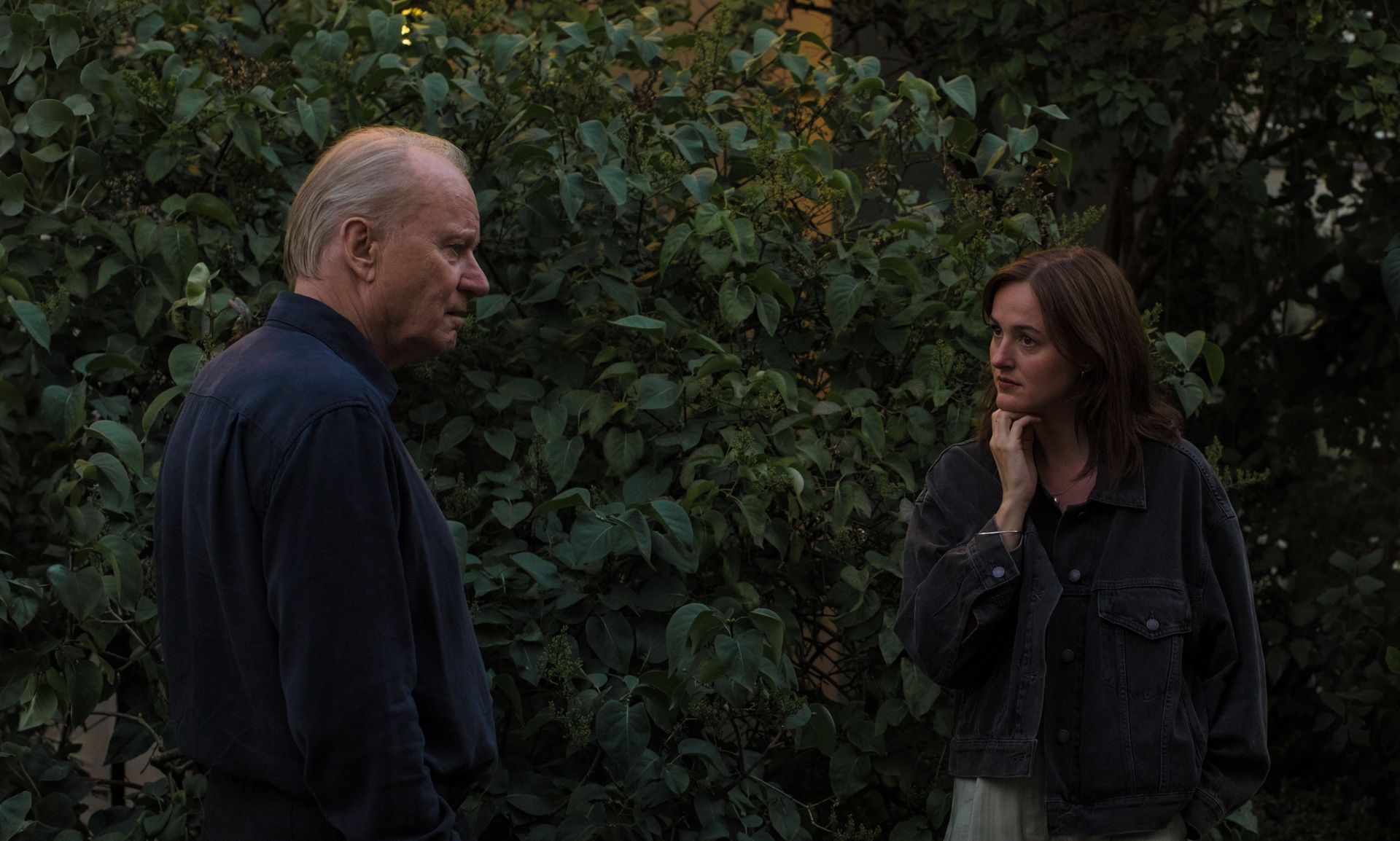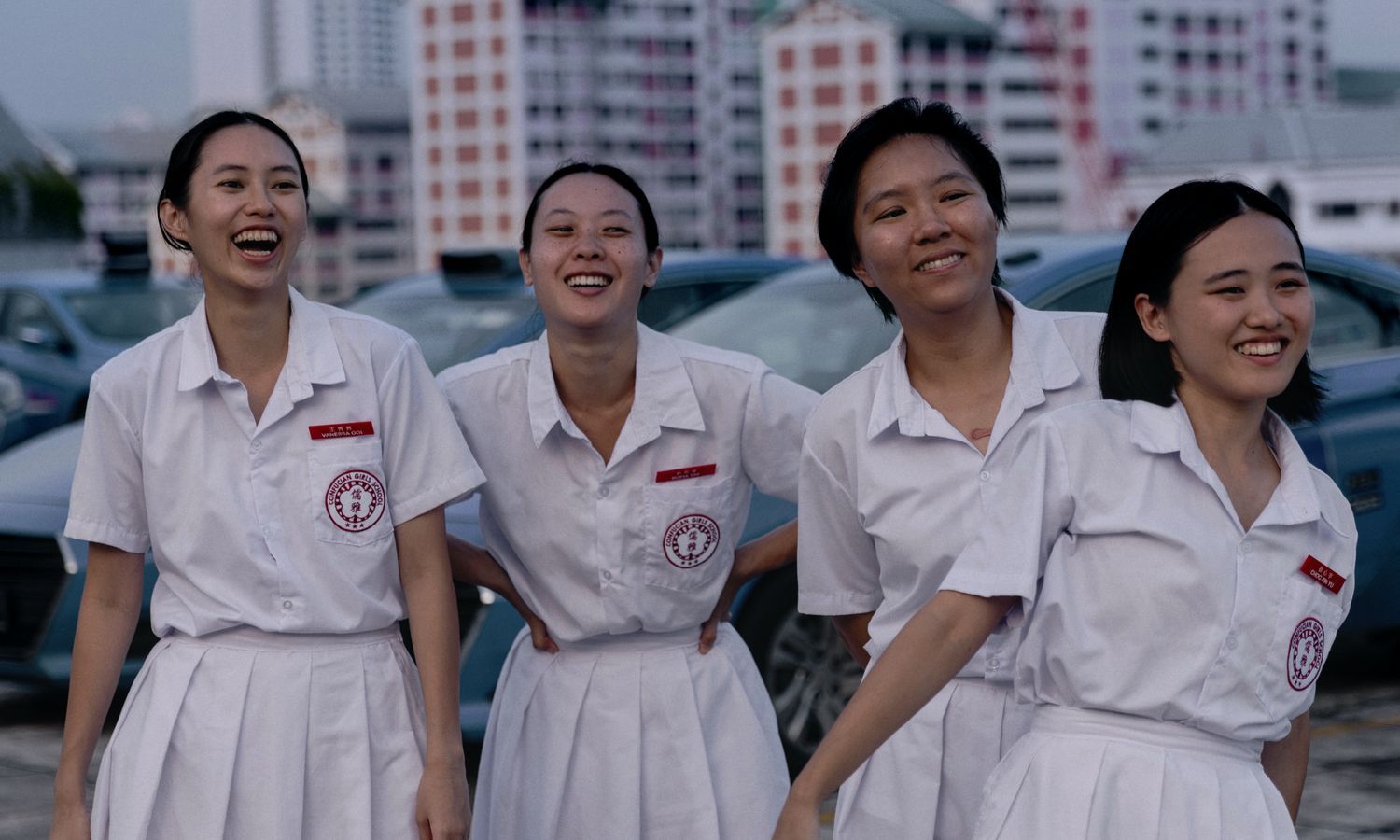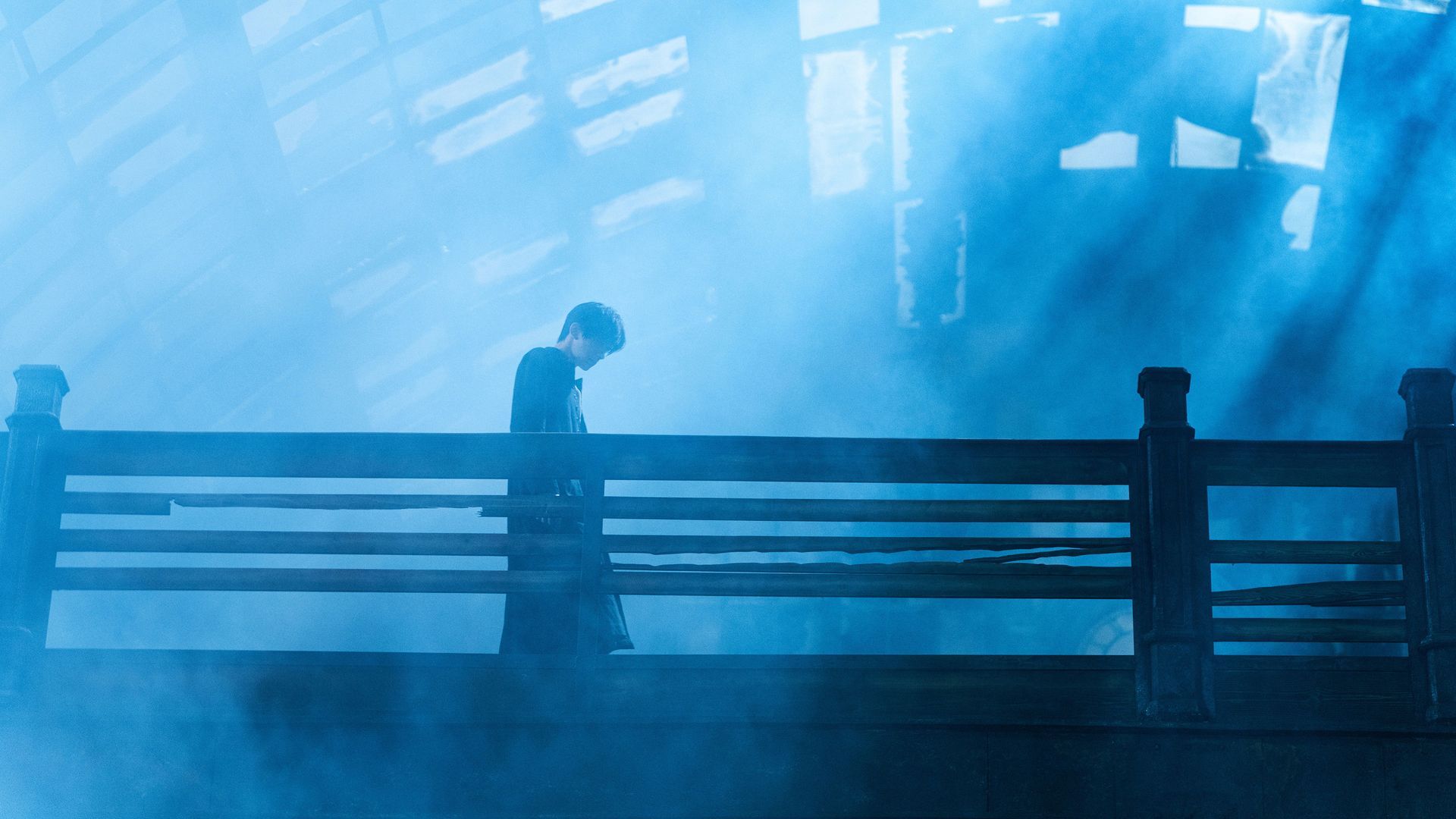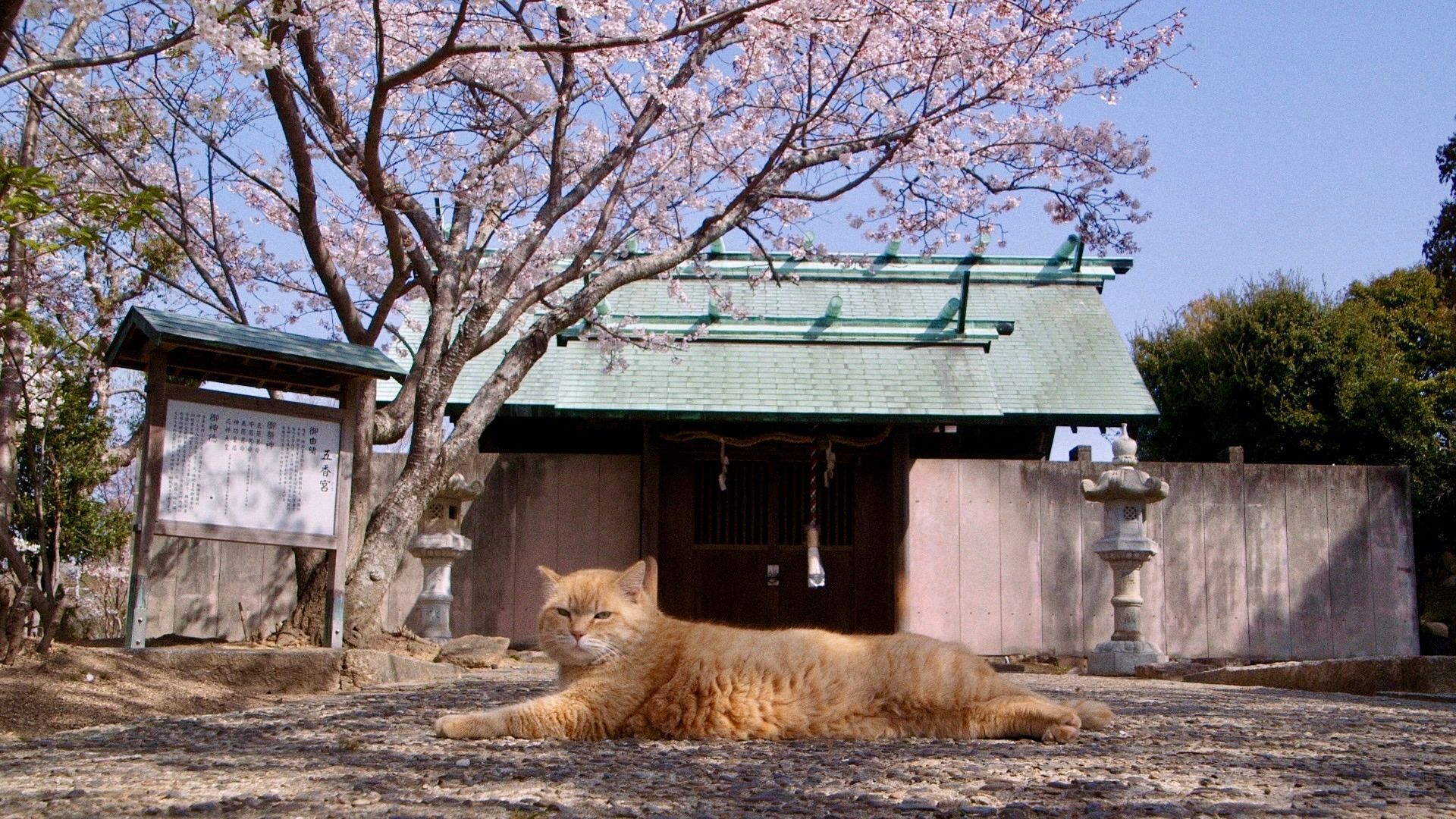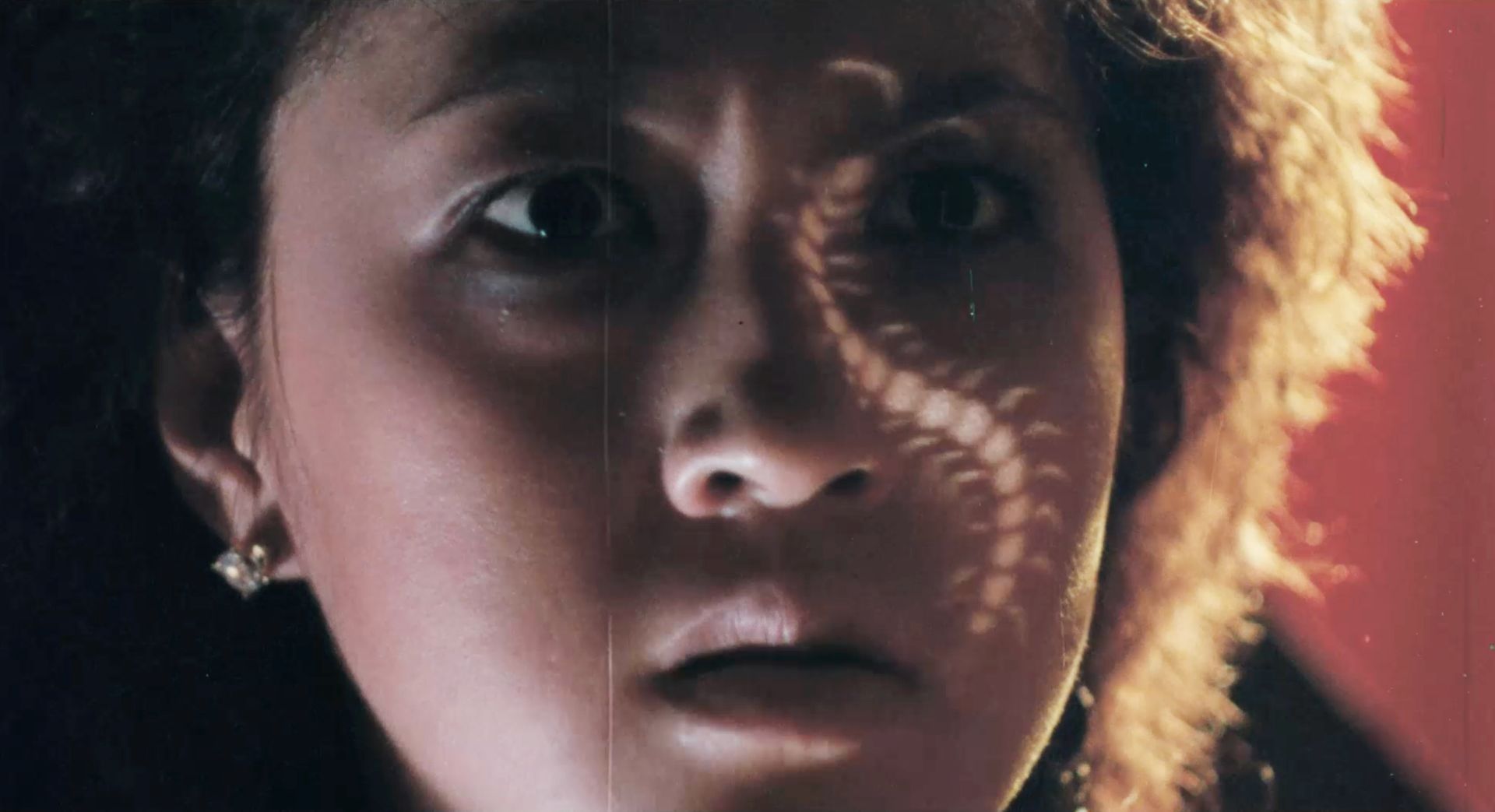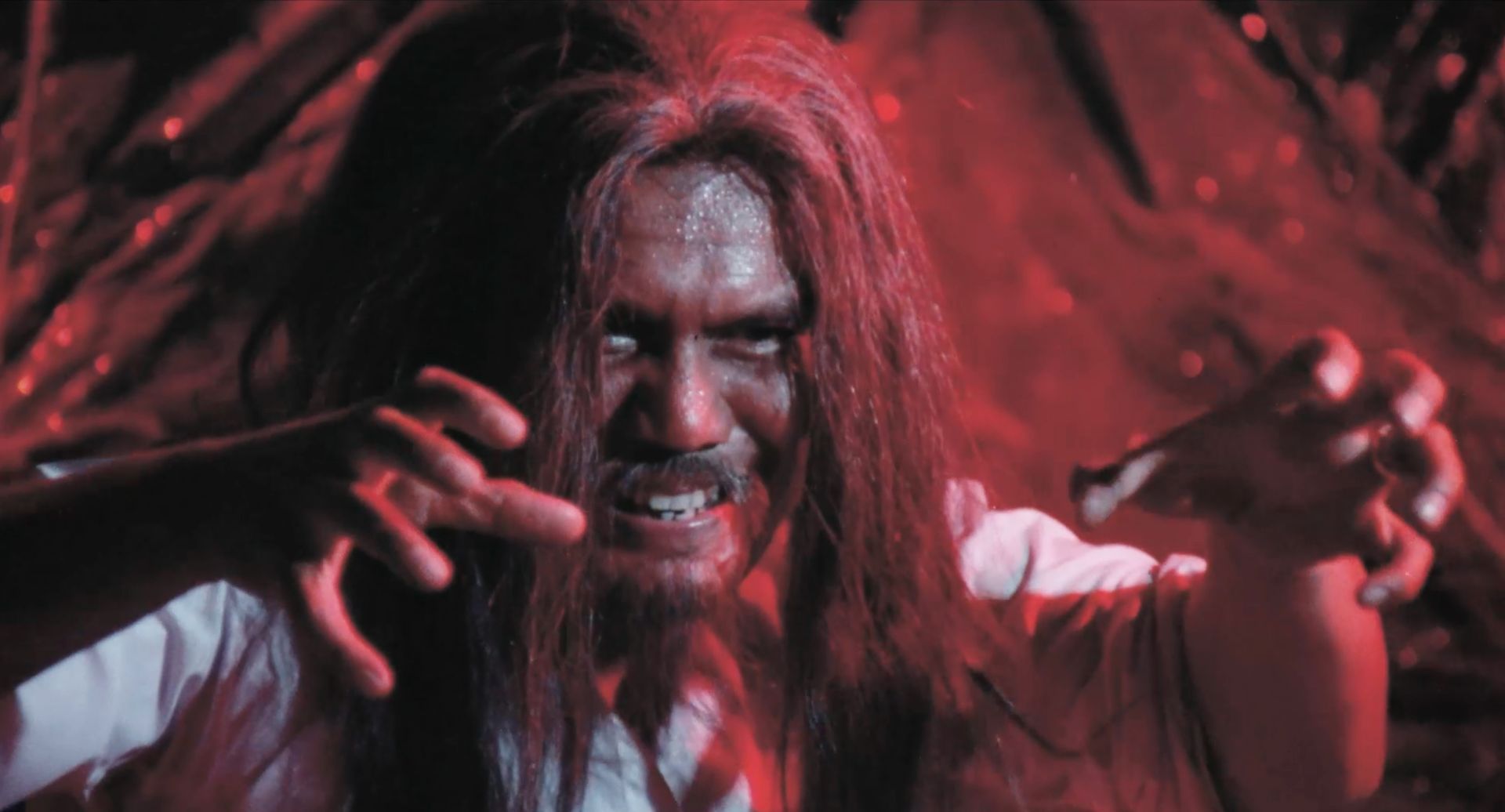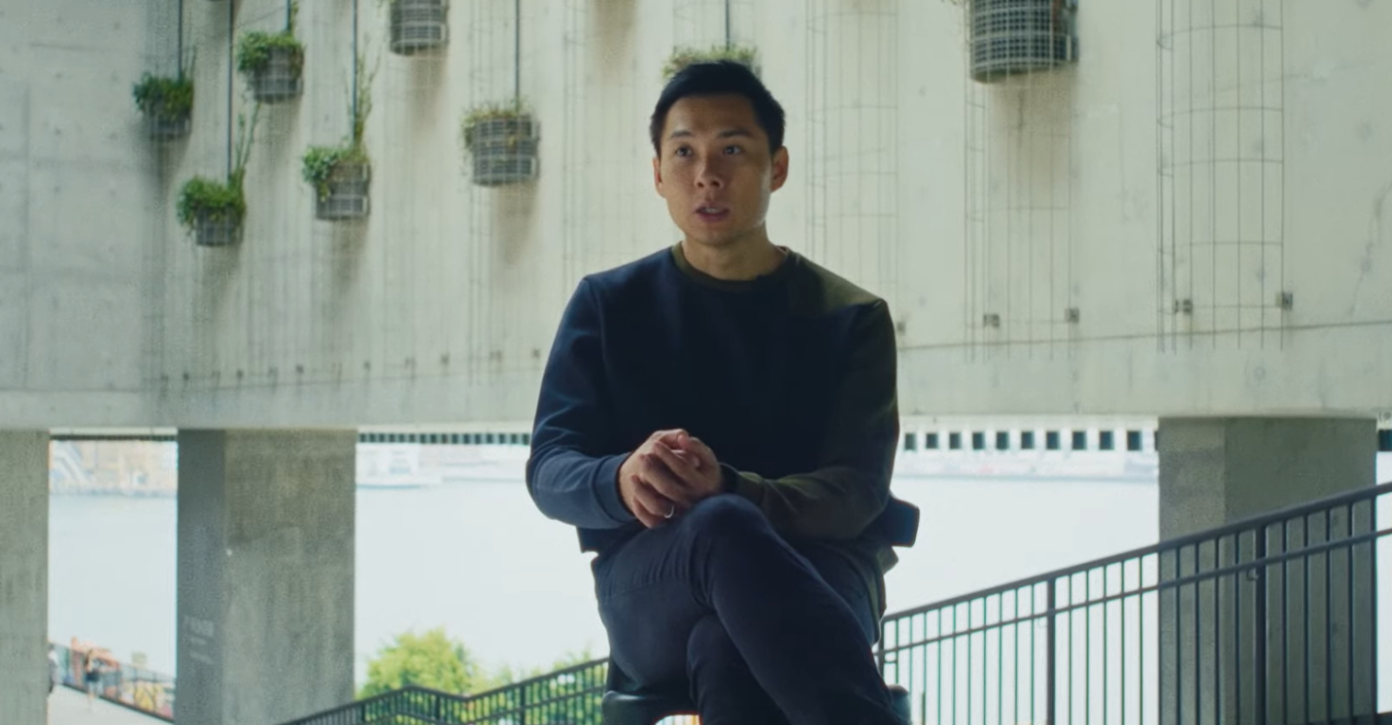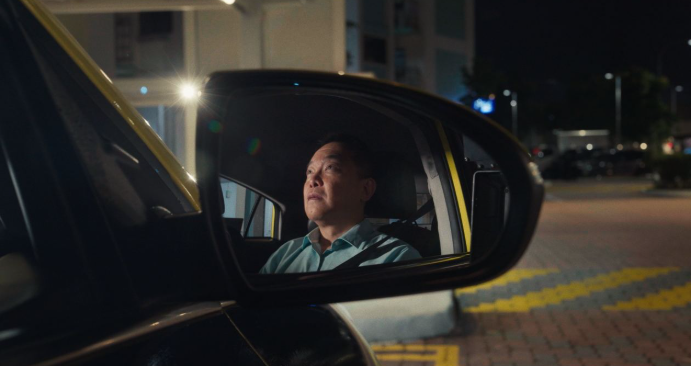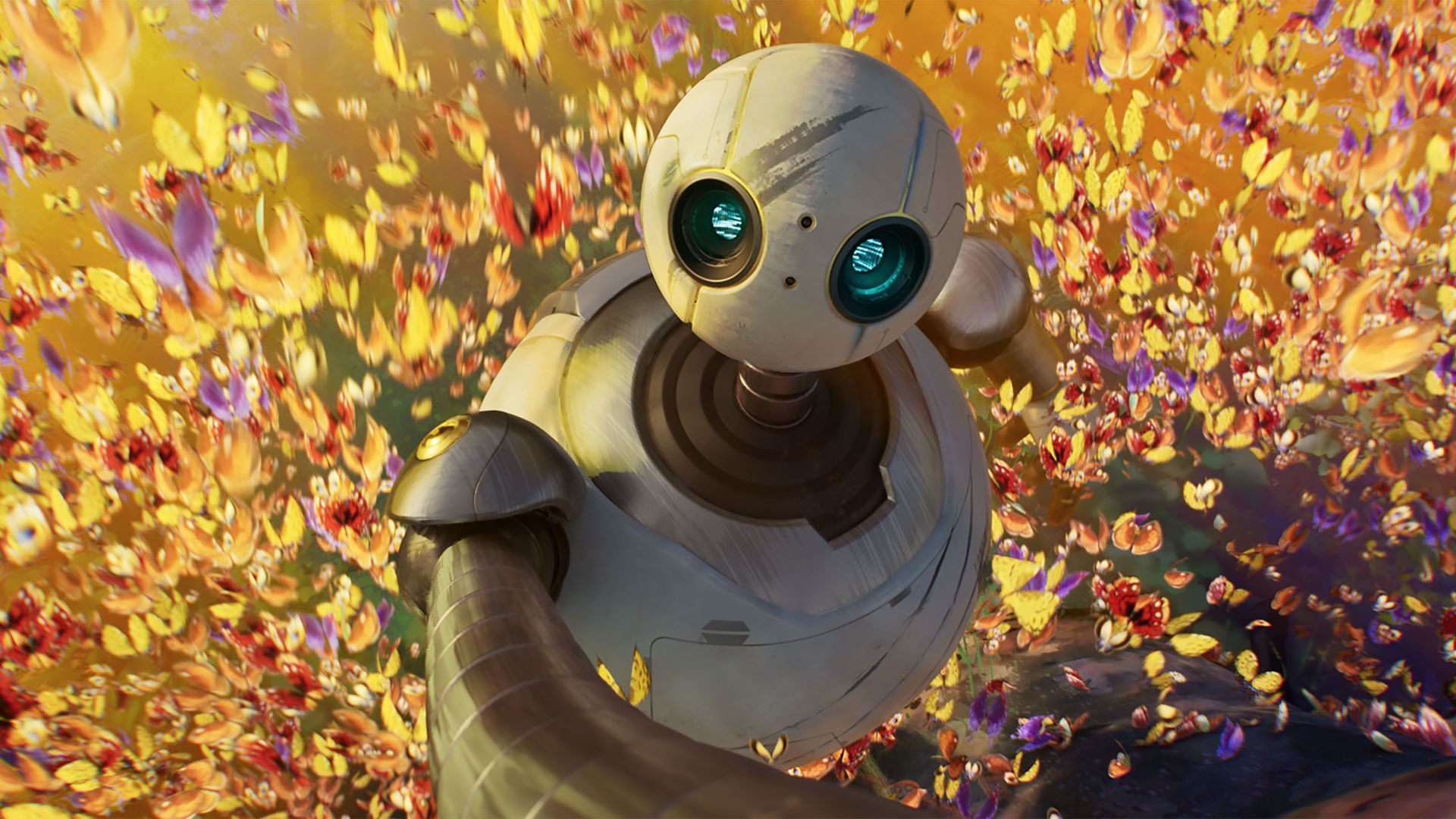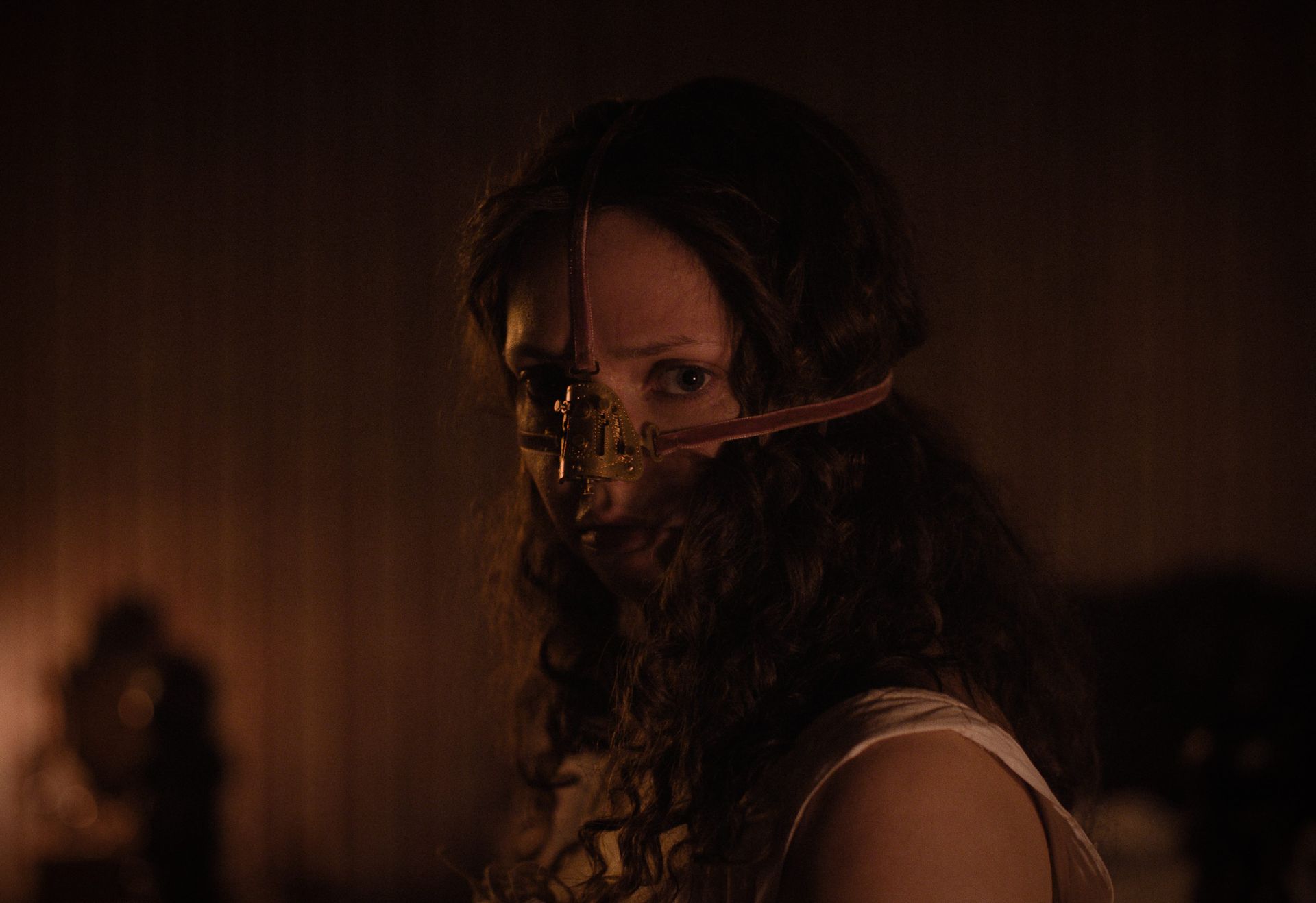The Actors are Present: Conversations with the boys of Tomorrow is a long time
The Actors are Present:
Conversations with the boys of Tomorrow is a long time
Since the world premiere of Jow Zhi Wei’s Tomorrow is a long time (2023) at Berlinale, the film has toured the film festival circuits in Hong Kong, Vancouver and Taiwan’s Golden Horse. The film will make its Southeast Asian premiere in competition at the 34th Singapore International Film Festival. It arrives with an announcement that the film’s lead actor, newcomer Edward Tan has been nominated for Best Performance at the Silver Screen Awards for his sensitive and embodied performance as Meng.
Edward leads an ensemble of young actors that compose the bullies in school and boys in National Service that the solitary Meng encounters. That none of the supporting cast seemed to turn out lesser performances than the lead speaks of the two to three years long casting and rehearsal process. Zhi Wei admits it was a commitment for all the actors in the film since they had to come in regularly for workshops without the certainty of being cast, “When you want to be an actor, you're there and you're present at every audition and rehearsal.” On a humid afternoon in October, I meet with Zhi Wei and three actors from the film, Edward Tan, Lekheraj Sekhar and Josh Lim, in a cafe nestled at a corner of a carpark.
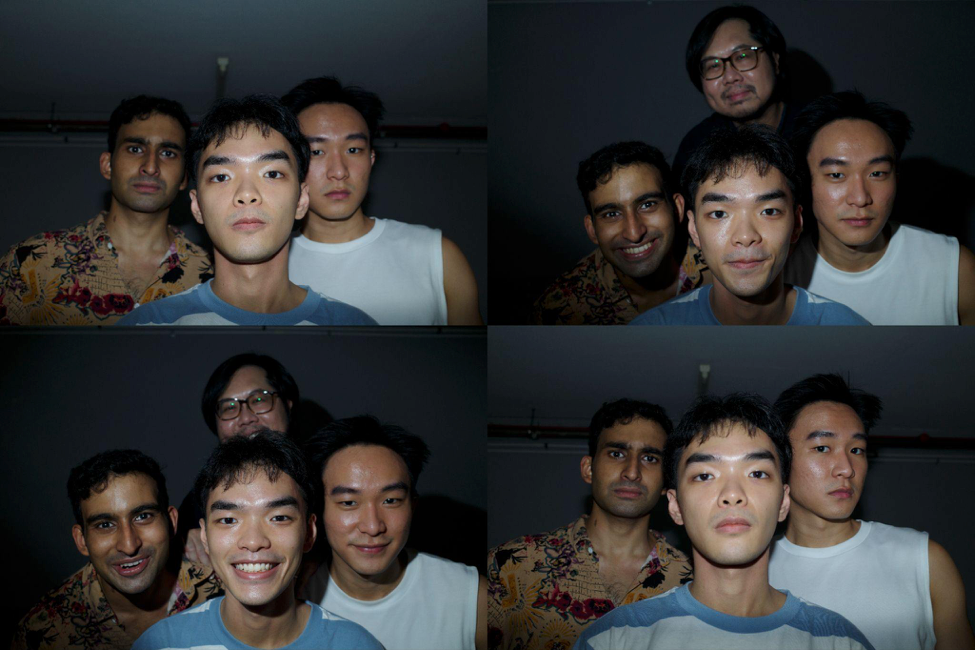
First picture from top left: Lekheraj Sekhar, Edward Tan and Josh Lim. Jow Zhi Wei in spectacles.
All three actors had been in acting school at some point. On Edward, an alum of Nanyang Academy of Fine Arts (NAFA), Zhi Wei says “The thought of going up against Leon Dai and Neo Swee Lin would freak most actors out, let alone actors who have never acted [in a feature film]. This is Edward's first film and he rose to the challenge.” Raj went to School of the Arts (SOTA) and plays Kishod, a fellow serviceman who befriends Meng in the second half. Zhi Wei was “blown away with what he brought to the conversation with Edward in the jungle “ and was “moved to see him play a scene [he] took years to write. They were just speaking to each other side by side talking, and that speaks so much about his ability as an actor.” With Josh, who plays one of the bullies and is currently pursuing a degree in acting at Laselle, Zhi Wei remembers how he “came with this openness and was very willing to try things. He had this innate energy and was crazy during rehearsals, trying anything and everything. I loved that.”
In the following conversation, I speak to the actors of Tomorrow is a long time about their process as actors, their camaraderie on set as well as their reservations, dreams and desires for the future of their industry. It was an afternoon of affirmation for each other, filled with laughter and a palpable excitement for the moment at the premiere, where they can finally watch the film in full with the rest of their cast members.
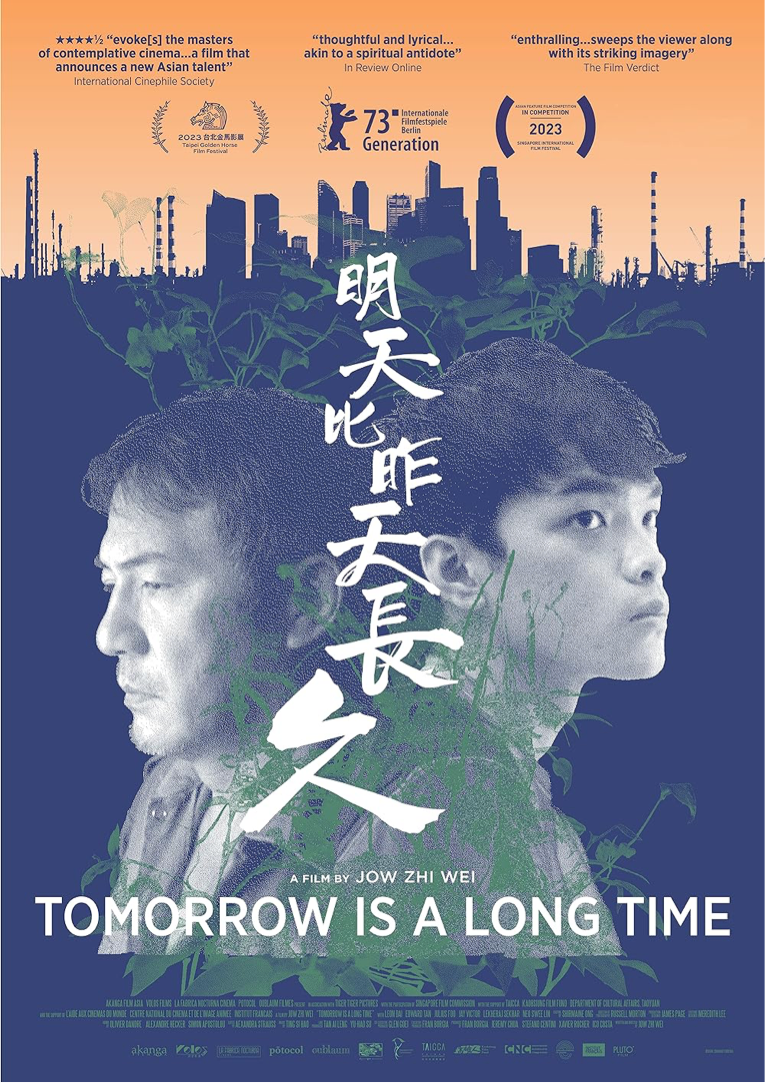
The following conversation has been edited for length and clarity.
SH: How did you first hear about the film?
ET (Edward Tan): I saw the audition on Facebook (SG Casting Calls). I was still in NS (National Service) at the time but I was bored so I started auditioning. I went in without expectation because if I had gotten the job, I wouldn't have been able to do it because of NS. I just went in because I hadn't acted in a long time and wanted to get back into it. The schedules worked out in the end because they had to postpone the shoot during COVID.
LS (Lekheraj Sekhar): Shirmaine, the casting director, saw a trailer for a passion project short [film] I acted in. She reached out through my friend. I didn't know what it was really about and thought I'd just audition. I genuinely felt like I was obviously not going to get it because it was on a much larger scale than anything I've done. It had been a really dull year but the last two months picked up and it wasn’t gradual. I'm still recovering from what happened.
ZW (Zhi Wei): It was a sped up process for Raj. For the role of Kishod, there was another actor we were looking at but when I spoke to him, he pulled out because he wasn't ready to go to Taiwan in the middle of nowhere, filming in the jungle at night. We were re-auditioning a month before I started shooting the first half of the film.
JL (Josh Lim): For me, Shirmaine contacted a very good friend of mine who is also a casting director. He asked if I wanted to try it out and of course I did! Then Shirmaine said there would be no script for the audition and I was wondering what that was going to be like because I come from theatre and I’m very used to working on a script. At the audition, Zhi Wei began by talking to us. I expected a formal audition but was asked to improvise and got to understand another actor as well. I've never had an audition where I felt like I could do whatever I wanted with the character and left feeling like I had a lot of fun. I remember thinking, "Wow, this is why I'm acting." I was in NS and had got into Laselle's acting programme, but I was reconsidering my choices and why I chose to do a degree in acting. The audition renewed my passion for performing.
SH: Did you guys receive scripts?
ALL: No.
ET: They kept the script really hush-hush during rehearsals. Nobody knew what the film was about. When I first read it, it was very interesting how everything came together like oh, yeah, we rehearsed this during auditions.
JL: It was only after a few rounds of auditions when the roles were confirmed that we got the script. Even then, we didn't have to say what was in the script word for word. We were given a lot of liberty and freedom to play our characters. I really enjoy working with Zhi Wei in that way because not many directors are like that. It was a working relationship not a top down approach.
LS: It was very interesting for me to [finally] read the script. Because I'm in a specific part of the film and I know a specific version of Meng , Zhi Wei made a point to provide me only with the story from my character's perspective. I know nothing of Meng's background, what happened to him in Singapore and his other life. I only know him as this soft spoken guy in NS. It was only until I watched the movie that I knew what happened to Meng. I really thought it was an army movie, a Full Metal Jacket situation. I probably would have acted very differently if I knew. I don't want to say it's method, but it really puts you in the situation.
ZW: What I usually do is I start off with a chat. I want to know if there's something I think is interesting about them I can draw from. Then we do some exercises, nothing too heavy. The first audition is about knowing if they can relax and to explain this journey I will take with them. It’s also about listening to actors. You can't direct all actors the same way.
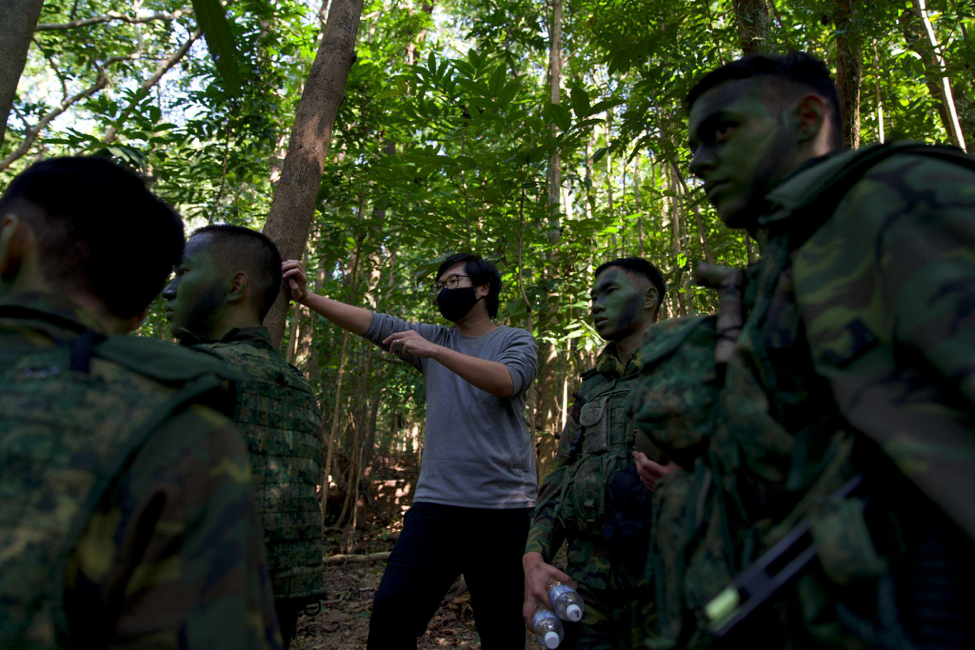
Zhi Wei directing in Taiwan.
SH: Edward mentioned you were giving them scenarios from the script without telling them?
ZW: Scenarios like the script, but not the script. I like to do that because it frees me up to see what they have to bring. I plan it quite well: I understand that at some point they have to see a script. But I want it to be at a specific moment when we have done the work together and they know who I am as a director and person. Then we give them the script and we talk about it. I chose them for a reason because they bring some kind of energy, some kind of chemistry that helps bring the film to life.
LS: Getting directed by Zhi Wei is a very organic experience. When you look at a script before going into an audition, you're formulating your character in accordance to what's on the script. But the way he approached it was to give us these scenarios from the script. It was a process of discovery of the characters. Then when we look at the script, we already have a sense of our characters' internal monologue.
ZW: And they stayed with me for the entire audition process. It's a commitment to be in this film. For Raj it was quick but for Edward and Josh, we had rehearsals every other week for six months. They came in for rehearsals without knowing if they were going to be cast. I couldn't promise them anything. Of course, as time goes by, being casted becomes more certain because you keep returning. But in the beginning they had to take a chance.
SH: What sort of exercises were you guys doing during the audition?
ET: My favourite exercise was actually playing an animal. Play a turtle or flamingo.
JL: During the first session I played the victim then swapped with the other actors to be the bully.
SH: I feel like I should've asked this at the beginning. How did you start acting and performing?
LS: I started acting when I was in primary school for drama club. I acted in a rendition of ‘Grease’ as Danny Zuko in Primary 3 — a 9-year old Danny Zuko. Then I went to SOTA to study acting because I really enjoyed it and wanted to become an actor. Then 6 years passed and my interest in theatre fluctuated. I came out wanting to do more art management but being in this film revived acting as a passion for me after NS, which literally destroyed me. Getting this opportunity revived whatever I felt I lost in NS.
JL: I got into acting accidentally. The Chinese Chess Club in primary school closed down and I was put into the drama club because they needed more boys. I continued all the way to secondary school. When I had to choose what to do after secondary school, I couldn't imagine doing anything other than acting so I joined Lasalle to do a diploma in performance and now a Bachelor’s in acting.
ET: I initially wanted to go to SOTA for visual arts but my parents wanted me to go to a normal mainstream school. I actually started acting in secondary school so if I had gotten into SOTA, I would have stuck to drawing. Everything worked out in strange ways. After secondary school, I went to NAFA’s theatre programme and started dancing because I was originally interested in musical theatre. I took up ballet to learn dancing but grew to like it on its own so I kept up with it. I started from the very beginning and there was a point where I was dancing with kids.
SH: What did you draw when you were younger?
ET: Random things. I watched a lot of cartoons and started painting with acrylics before doing watercolours.
SH: Was acting something you ever had to discuss with your parents?
ET: I have a lot of siblings so I think my parents got tired of managing us and allowed us to do whatever we wanted.
JL: I had to be very strategic about convincing them. I thought, “Why don't I invite my parents to watch my SYF performance? If they liked it, they'd let me continue acting.” So I did and they really liked it! They thought the whole show was amazing and I had the potential. Because they're Asian, I was telling them how much my drama teacher makes. I was doing the math for them and telling them that if I did really well in acting, I can be a drama teacher that can earn this much as well. It was less about acting and more about money.
LS: My parents were surprisingly supportive and have been very supportive throughout my life. Because of ‘Grease’, they were like okay lah, let him do what he wants. But it was a highly controversial choice in my extended family. They wanted me to go to an elite school and eventually study law or medicine. I just wanted to be an actor.
ZW: I remember after shooting in Taiwan, I met Raj's parents at the airport on the way home. I said to them, "Your son is a great actor!" And they just smiled at me.
LS: They're very awkward and don't really know how to react. Anyway, my parents might have forgotten that I'm a great actor now. They just tell me to tidy up my room.
JL: You need to remind them.
LS: The next time they tell me to put my towel back I'll tell them, "I'm a great actor."
SH: Was there a performance or someone you really admired when you were younger and still do?
ET: I was very inspired by musicals. What drew me was the music and that's why I continue dancing — because of music. And the dancing in ‘West Side Story’. In my acting, I use music to help me. It's sometimes hard to generate emotions but music can help get me into the mood.
JL: The inspiration I get is often not tied to a person or people but portraits of vulnerability. When I look at characters and think about what makes them relatable, it's often the vulnerable side of them that attracts me to watch more. Sandra Oh is really good [at that]. There was a period of time where I would binge watch Grey's Anatomy and she's such a strong character in the show but whenever you see her break, there's gravity and truth in her performance.
LS: One of the people I admire most is Øistein. I grew up watching Doodle Champs on Kids Central and Øistein is this trade artist who would start with a squiggle and start making images out of it. I was so obsessed: in school, I would make squiggles and play “doodle champs” by myself. The other is my theatre teacher, Ms Serena Ho. She would encourage us to just put things out no matter how bad we think it's going to be, then make something out of it. Both of them are advocates of the element of play in creating art. I think a lot of times we tend to lose that sense of experimentation. I like the idea of putting something random out and seeing how it works then playing around with it. Øistein and Ms Serena gave me a lot of courage.
SH: That's important. It's easy to get caught up in the fear of failure and end up not doing anything. At some point each of you mentioned NS which I'm very happy about. I want to talk about that, especially since the film is about boys coming-of-age in Singapore and that tends to begin with mandatory enlistment. Raj, you said NS broke you?
LS: Before NS, I was in SOTA, an environment that was extremely liberal, where anything goes and sensitivity is celebrated. Going to NS sometimes means you're going into a very conventionally masculine and potentially toxic space, where vulnerability is seen as weakness. I had severe adjustment issues. I was so bad at handling rifles, just bad at everything really. I questioned every part of who I was when I was in the army. It broke me because I was unable to address an environment that is so regimented. It worked out in the end, because the less positive aspects of it seeped into my character in the film. The way I handle adverse situations we go through in the film is influenced by how I was when I was in NS.
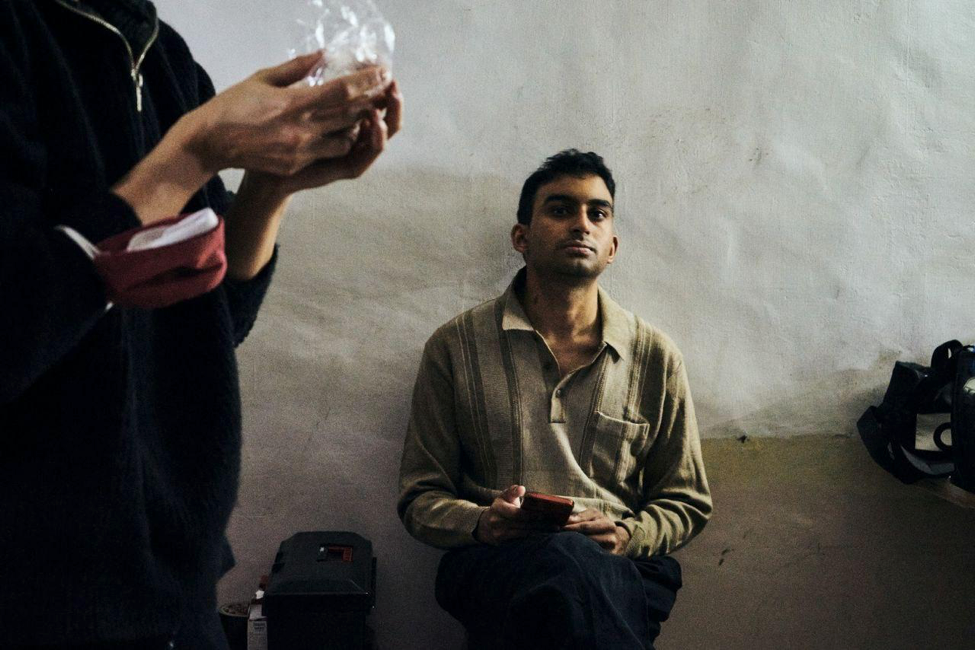
Raj on set in Taiwan.
SH: Would you say this film gave you another chance to do NS again? This time, you were able to help others get through it.
LS: Yes! It was almost like interacting with my past self. I was almost a completely different person. I had a couple of friends but they weren't with me throughout the entire period.
JL: What you said is really relatable because I had a really down time in NS too. In art school, you are respected and your opinions are valued. When you go in, they talk down to you. I initially did quite well. I was Platoon Best in BMT (Basic Military Training) and sent to OCS (Officer Cadet School). I was fighting with myself about whether I should continue being in OCS because I also thought it was such a stupid thing to do. But I was literally tearing up booking in and going into South D was so sombre. OCT (Officer Cadet Training) ranks are lower than a private and that felt like it was against me as a person. It took a lot of courage to tell them that I want to get out of the course.
I eventually got posted to medic school, then the bomb disposal squad, a unit mostly made up of regulars where we work in teams. At both places, everyone was treated with respect. The regulars would talk to you as friends would and we'd go for regular outings together. That was when I truly liked the experience of NS. Now, when I'm so detached after having been out of NS for so long, I only remember the downtime. The free time you get, time where you have fun with your section mates in the bunk and become friends.
SH: How did all of you feel going into the army? Was there a lot of trepidation?
LS: Oh no, I was so excited and thought I could be a good leader. I had such confidence in being good at things because I did pretty well in school. I went into NS with the mentality that it was going to be a piece of cake. My Mum tells me that after I was born and brought back to the house for the first time, my father was introducing me to the house like it was my new bunk [going], "Okay recruit..." He was always quite excited for me to go to the army. Not because he had high expectations but because he thought it was fun and would make me more adaptable. I don't completely disagree with this because it does make you more capable of dealing with adverse physical conditions. But I'm wondering if it desensitises you in the process as well.
JL: I packed 2 months in advance thinking about what I'd need because I thought the army was fun and going to BMT meant I could make friends. And the jungle! It sounds so fun. I was really excited for the gear that I’d be receiving, the uniform, Bushcraft...
ET: You know how when you first get in, you're really inspired? It's a new start and you can reinvent yourself. But then, you slowly get demoralised. I wasn't looking forward to it but I was determined to take it seriously and try my best. But you do get mentally exhausted in time. Generally, I don't think the army is a very good environment for someone creative and their psyche. It does help you learn about yourself, in a way. How much shit you can take. How I'm actually quite capable of tolerating things like I never thought I'd be able to get through and I'll just get by.
SH: Edward mentioned reinvention. Was this something the others experienced as well?
LS: There's this sense that NS is a milestone that every Singaporean boy has to go through — a point where we transition into adulthood.
ZW: NS was quite a long time ago for me. What I remember most is I had to completely readjust myself because I was living life a certain way and I was suddenly thrown into this environment. I remember the quiet moments where I will bring a book to read during free time and tune into music in my mind. Those quiet moments were where I remembered myself. With regards to why it’s in the film, NS is a coming-of-age moment every Singaporean boy has to go through and it seemed to be a natural progression of the story. At the same time, I wanted a new environment to recontextualize the film. I wanted the NS portion to be more fable-like, about a group of boys going through the jungle together.
SH: Would you say that filmmaking is like being in the army since things take a lot of time to get set up? I hear how in NS, you spend a lot of time just waiting to get activated, and I was wondering if the waiting was similar.
ET: I think waiting on a film set doesn't feel like waiting at all. It's a moment waiting for what's going to happen next.
LS: Waiting was present in both NS and film but waiting in NS felt less constructive. I think it's because the actors were all waiting together. It gave us a lot of opportunities to talk and build rapport with one another. We were a section both on-camera or in the background chilling. With Edward, we had really good conversations while waiting, which helped with filming.
JL: Even in NS, the waiting really gave me a lot of time to bond with my section to play, just as it did in filming. Waiting together is fun and it's in these moments that you build a friendship with each other. Even now, I'm still really good friends with my castmates and want to keep up with the friendship.
ZW: Every film I've made took time. I've never been a person to churn out films. I admire filmmakers who do that but for me, it requires time to live with it and think about what I really want to say. You begin with a lot of ideas before you let things fall away from the core. I never felt like I was waiting for the sake of waiting.
SH: I'm also thinking of your NS journey, how you brought books and listened to music in your head. You weren't just wasting time waiting for commands.
ZW: What I tried to do was find things that gave me joy. Making films and working with actors give me joy and that allows me to continue. When I go to film festivals and watch a film I love, it feeds me and makes me want to make another film. That's something that I search for.
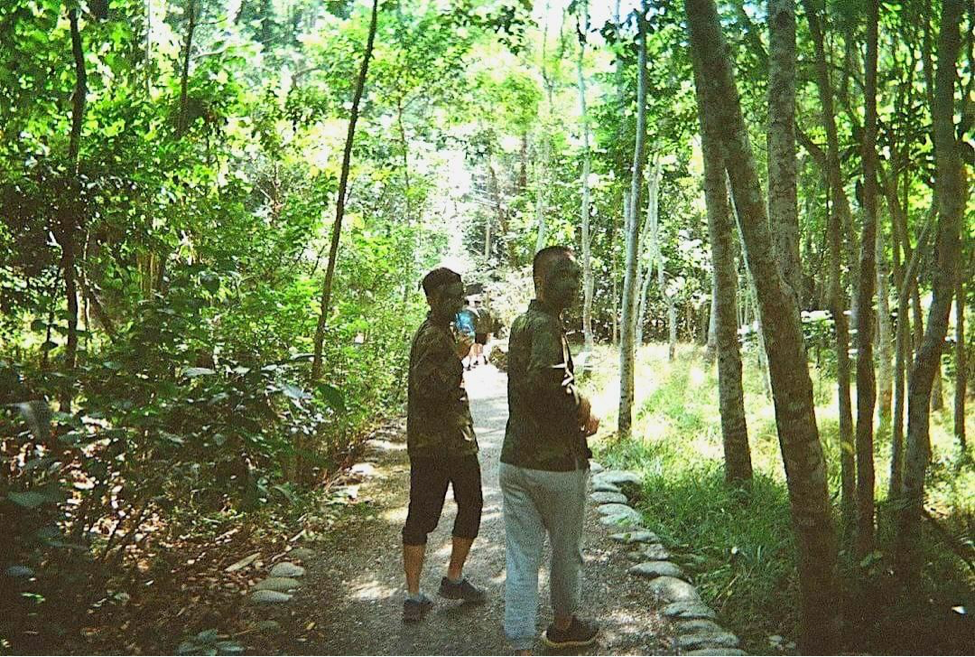
Edward Tan drinking from a packet and Dominic Tham on set in Taiwan.
Photo by Lekheraj Sekhar.
SH: I'd like to go back to what it was like on set.
ET: I come from theatre so one big difference is you get to be in a natural environment instead of using big props. I think they also require different types of stamina. In theatre, it's the stamina to do the same thing over and over again, from beginning to end. And each time you do it, you have to pretend that you're doing it for the first time. For film, you have to do it like you're doing it for the first time, but it's in smaller chunks. For Tomorrow is a long time (TIALT), the shooting process was very long, which is where stamina is required.
ZW: What I like about film is you can always retake if you do something that doesn't work. It's something I try to impress upon the actors to not worry, because if it isn't good, we can try different things. With different takes, I try to do different things so it gives me options in editing. While you have to wait for a whole day before performing again in theatre, it's more immediate on set.
SH: I understand that the making of the film was mostly chronological.
ZW: Yes, we shot in Singapore first, then Taiwan. Initially, there were discussions of shooting in Taiwan first, then Singapore. I insisted that we had to do Singapore first because for Edward as an actor, he needs to know what happens in the first half of the film before he embarks on the second.
SH: The actors received the script after rehearsals ended and I'm wondering, when you read it, did the character of Meng come first or did your personal experiences precede it?
ET: When I first read the script, I was quite surprised. I thought I was very different from Meng. I prefer to be alone while Meng cannot be alone. I would have reacted differently in the situations that Meng was in. I think I got used to Meng after shooting the film.
ZW: I remember Edward breaking down at the end of the film. He was so immersed that he felt very sorry to let him go, which says something about his sensitivity. Filming took two months but Edward lived as Meng before that.
SH: What was going through your mind when you broke down?
ET: We were shooting a scene where Meng was sitting at a table by himself. I was thinking about the first scene where he was eating with his father at home but there wasn't anyone around him in the scene.
SH: How did it affect you as an actor looking back at this journey you had with Meng from the start of the film to the end of it?
ET: It didn't even occur to me to think of it that way because I was so immersed in Meng. I was really thinking about how he would feel at that moment. I think I broke down not because I couldn't part with the role, but because I had become more connected with Meng as filming progressed. When we first started he felt like a stranger. In that moment, the fact that there was no one [around] him really affected me.
SH: Raj, what was the process of filming and how did you approach the character?
LS: The practical difference I saw between film and theatre was, in the latter, you're feeding off the energy and live reaction of the audience which drives you. On film, your expressions are less projected and I had to get used to being nuanced about my emotions. When I was doing this film, I had to adjust to this sense that I was never really going to know how I was doing.
With Kishod, I had this sense that he was sort of like me. I really did draw from my own personal experiences with being in NS. While it helped that my character was not entirely different from who I was, it was sometimes hard to draw the line. I remember Zhi Wei asking if I wanted to name the character Raj. I was very against it because that was the one thing that distinguished myself from the character.
SH: Josh, you don't seem like a bully at all. Was it hard playing one?
JL: It was actually really hard. I'd never bullied anyone and have never been bullied. But I remembered that during the devising process, we started improvising and I felt the character. Whatever I did during the filming process was my emotional recall from rehearsals. [Having to speak] in Mandarin and Hokkien — I don't have an emotional connection to those languages even though my family speaks them. I feel that it's very important as an actor to grasp the nuances in language so I immersed myself in Chinese songs while speaking to my family in Mandarin and Hokkien. Now I love it, and think Hokkien is such a nice sounding language especially when you hear the Taiwanese speak it. It's so soft.
SH: When they told you you were going to play a bully, how did you feel?
JL: I was kind of excited. Acting is a lot about playing and here was a new character I've never done before and I was wondering how he would behave. I took it as a chance for me to really play and explore the possibilities. It was the same way during filming as well. Being on site was really fun to us because you could interact with the architecture. I was in an abandoned swimming pool and the leftover water was disgusting. It was so much fun.
SH: Did your character have a name?
JL: His name is Josh. Josh playing Josh.
ZW: A number of the characters in my films aren't named. In my previous films their names would be "The Man", "The Woman", "The Boy". I like that they have no names and I see them as just them. I also gave Raj that choice but he said he didn't think it was helpful. It's great that they can tell me what they need and we'll work on that.
SH: Did each of the bullies have a characterisation? Or were they a pack that travelled together? There was this sense that they were always overwhelming in numbers compared to Meng, who was solitary.
ZW: I see each of the bullies as individual people. They couldn't be non-descript.
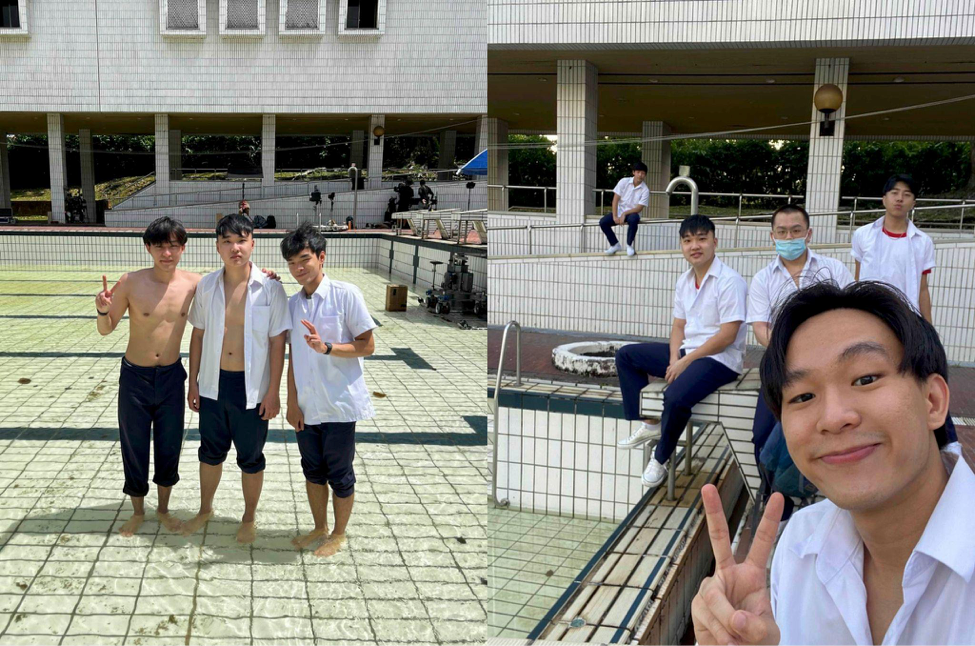
Left: Josh Lim, Li Jin Hao, Edward Tan.
Right: first row, Josh Lim; second row Li Jin Hao, James Sui and Belmont Soh; third row, Jaden Chew.
Photos by Josh Lim.
SH: Do you ever think about your characters after the last scene you played them?
ET: Definitely. I wonder if he's a singer sometimes. I hope he found his community and people. And peace.
LS: I do think about him a lot because it was a very reflective experience for me. It felt like I was reconciling a part of myself by basically getting the chance to relive portions of my NS experience and then deal with it differently. Kishod is that representation of the supportive guy I wish I had on my side.
ZW: Josh had a shorter period on set.
JL:Two days.
SH: I can't believe you guys only took 2 days to shoot those scenes.
JL: Rehearsals really helped when it came to actually shooting so we could do it fast.
ET: We became really tan after the swimming pool scene.
JL: I remember [the crew] applying a lot of sunscreen because I was shirtless in that scene. There were a lot of fighting sequences and a stunt choreographer was there!
LS: We had a [similar] swamp scene. It was at night and it was so cold. I was kind of excited to do that scene because it's one of the highlights of the film. The crew was also so warm, both literally and metaphorically. The moment we got out of the swamp they would wrap us in towels and put us over the fire and marinate us.
ZW: We had a heat tent where we put the actors.
LS: I miss that deep bond with the crew in Taiwan. I don't speak much Chinese and I tried my best but they were also trying to speak in English; both of us trying to navigate the language barrier. It was so lovely. They introduced me to new music as well, like X Japan, this metal Japanese band I love so much now because of my makeup artist Colin.
JL: It's so nice that in filming you get to meet so many people but when it ends it's so sian. How long was the entire Taiwan jungle forest process.
ZW: We had to quarantine for 3 weeks in the hotel room. Solitary confinement and Zooming each other and with producers who were showing me pictures of all the different locations so they could figure out what I liked and didn't so we could immediately head out to scout after quarantine. Shooting itself took 12 days, plus scouting for about a week, for a total of five weeks.
The 6 boys had to do the quarantine and couldn't come later because the logistics to schedule for them to come down later wouldn't have worked. While we were scouting, they had a week to go around Taipei for a bit.
LS: Quarantine was damn fun because I always wanted to use a bath bomb in a bathtub with a nice glass of wine. I wanted to see the way bath bombs reacted with water so I did that on New Year's Eve with a Lush bomb my Mum bought in Singapore. While counting down to the new year, I was just singing my Happy New Year to myself. The isolation was also really helpful in getting myself in character. Edward was my roommate for the most part.
SH: What did you get up to?
LS: Sometimes our conversations were about the most random things and ended in total silence. We would just go back to doing our own thing. He's the ideal roommate because he was so chill.
ET: I enjoyed his ukulele.
LS: I was very noisy and a huge nuisance so I can't believe he managed to disappear and get into character.
ZW: One of the crew stayed next door to them and they were saying, "Oh my god, I can hear Raj through the wall."
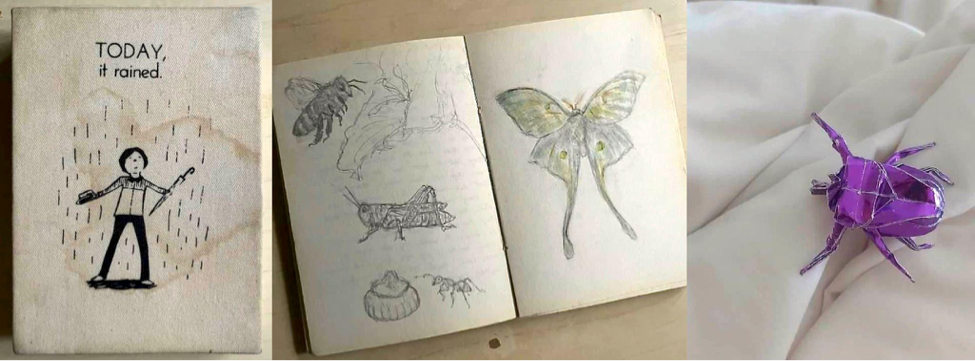
Edward’s journal for Meng , a drawing of a grasshopper and other insects, an origami of a beetle.
Photos by Edward Tan.
SH: Edward, did you enjoy it?
ET: Sometimes. But he's a very nice person to have around and he's funny.
LS: At least I'm nice, then! The thing about Edward is the amount of preparation and effort he puts into characterisation is crazy. Even with me being present in the room, he could be totally in the zone and focusing on getting into the Meng mode. You can see it because he's really just focused on that and he's disappeared. He was also working out, going all out in the physical and emotional preparation, even though I was a huge distraction. Putting me in the same room as him could have been so dangerous for the film, but living together helped us build rapport.
ET: I pretend to be Meng and write journal entries, like about what happened before this scene and after. They're just to help me understand him. All the diary entries would be addressed to Meng's grasshopper friend, because Meng likes collecting insects and has a pet grasshopper. He had a cage in his room and I thought that that was maybe what was in the cage.
ZW: If you notice in the film, there are pictures and frames of insects. So his father is a pest controller while Meng collects bugs. It's a small detail that you might be able to pick up if you watch it a second time. It's not meant to overwhelm you with its significance but it's these details that I put in when I'm defining him as a character, which Edward was intelligent enough to pick up.
JL: That's a really good exercise actually. Doing your 6-steps.
ET: It helps to compartmentalise your thoughts.
SH: Were there pictures inside the journal?
ET: No, but I drew insects.
JL: Quarantine was kind of like a cage too.
ZW: What was it like for you guys in quarantine?
JL: I had an elderly grandma at home when I was sick with COVID in Singapore, so I did my quarantine in a hotel. It was seven days and I was in the same space all the time. I was going crazy, I cannot imagine spending three weeks in a hotel room.
ZW: I loved it. It was just my thing.
LS: Remember how the otters took over? I was so happy for them.
SH: We've talked a bit about waiting. All of you are reaching the end of your education for the foreseeable future, though I'm not sure if any of you are planning to further your studies. What can't you guys wait for to happen?
ET: Honestly, I'm waiting for the next chance to act.
SH: Does it feel like it's very hard to continue?
ET: I’ve continued auditioning but sometimes, rejection can be really demoralising.
JL: It's so scary. When we graduate, the safety net will not be there anymore. We'll really have to find work. The industry in Singapore is really hard. A lot of actors stop acting after a while because they have to focus on something else to put food on the table. But also being in school with such a busy schedule, there were many times that I had to say no to projects. It feels like the worst thing to do. Because you just want to act, but because of school and your training, you cannot do that. When I'm in school, I feel I’m always waiting for life to begin. I'm excited but my future in Singapore is so uncertain.
LS: For me, there's a high chance I'll end up doing a job that's unrelated to the arts simply because of money. I have this idealistic notion that I'll get a job that grants me this financial stability to fund my passion projects. But I know when push comes to shove, it'll be way more difficult than I envisioned it. I want to try to achieve it anyway, where there's money coming in from a full-time job and this money is going back into my passion for acting. I'm currently doing a part-time communications internship because I'm trying to figure out what to do after university and I have nothing much on my resume.
SH: Is there a role you guys wish you could play?
JL: Right now, I just want to capitalise on my youth and play a high school character. I'm not going to look young forever and I want to do those kinds of roles, like The Teenage Textbook Movie.
ET: I'm very interested in Jim Carrey's filmography. I would like to do something similar to what he's done. Both his comedy and dramatic works. He also has a really flexible face.
LS: You really do have a Mask’ sort of face. I also think you can play a Joker kind of character.
ET: Playing a psychopath is on my bucket list.
JL: I played a serial killer once before. It was so fun because you really have to get into a serial killer mentality.
SH: What is the serial killer mentality?
JL: A bit psycho? You think killing people is funny and you enjoy killing people. Sadistic. Playing a character that's so drastically different from yourself is so much fun. You're really stepping out of yourself and having an out-of-body experience.
SH: Why do so many actors want to play psychopaths?
LS: Because you can take such risks. Because you can really play around with it. It gives you the flexibility to do out of ordinary things. It's fun when you can break something that you wouldn't be able to do in a conventional setting, but you can be wild in these circumstances. I want to play a psychopath too, but I'd like to do more comic roles as well. I do it in theatre, but never had the chance to do less serious work. It tends to be very emotional.
SH: Do you feel like Singapore doesn't really support its actors in general? What is your sense of how the system and structure works?
ET: I can't think of anything specific to Singapore because it feels like actors elsewhere in the United States also face the same problems about sustainability. There's no full-time actor job because it's a gig economy. [In that sense] it's really good to see more Singapore content being made, which is quite hopeful.
JL: It's really hard for me to say because when I first started out, it was hard to break into the market. Not a lot of stuff would be offered to me anyway. In Singapore, there isn't a big market for actors because it's such a small country. There aren't a lot of jobs. I feel like other actors overseas would probably face similar struggles but being an actor in Singapore is a little bit harder. There's just not a big industry, unlike in Thailand, US, China, where the population is huge.
SH: Do you think you'll leave?
JL: I want to be in Singapore and I also want to experience acting overseas. Recently, I did a project in Thailand. There, I got to learn more about how big the Thai industry is and what actors do. That gave me the inspiration to try other markets in the future. You need connections and you need to be brave.
SH: Raj?
LS: I wanted to talk about being a minority actor in Singapore. It's become a double edged sword. There’s a positive in that people are focusing more on inclusivity and diversity; there's an avenue for someone to enter the industry in this manner. But on the other hand, it can fall into tokenism. For certain projects I've been selected for, I know it wasn't always because of merit. There was barely any competition because I’m an Indian guy. I get cast because I look a certain way. I'm not sure it's a problem that can ever be solved.
Naturally, the racial makeup of Singapore means that there's less minority actors. It can sometimes lead you to question your own ability. I don't know if I'm a good actor or if I'm only here because of my race. That's my experience acting in Singapore.
ZW: Raj isn't wrong. In this particular film, we were considering actors of all races especially for the casting of the army boys. I was very specific to the casting directors that we would cast as wide as possible. For me it's about the ability of the actors and I think Raj is a wonderful actor. In the scene where he has a conversation with Meng, I felt that these words that I'd been living with for years had come alive. I was very moved by them. I understand where Raj is coming from and I hope people can look past that and cast Raj for the actor that he is.
LS: Thank you so much, Zhi Wei. It's only natural that it is this way, of course. Most of the stories are being told by Chinese folks because they are the majority in Singapore and that means there's also more competition amongst the Chinese. [But] I feel quite strongly against tokenism because of my personal experiences being selected for corporate videos in the past. I've literally been told I was selected only because they needed an Indian guy. Someone else was supposed to be selected but because this person wasn't diverse enough, they weren't selected. It affected how I perceived myself and how people would assume that this guy is up there because they needed representation.
ZW: Does it affect your confidence as an actor?
LS: Definitely. For TIALT, I knew it wasn't tokenism because it was focused on performance. But there are so many cases where they clearly don't care about how well or badly I act. I'm in because they just need some loud, funny Indian guy — especially in the corporate world where they need to show face. I think it's more prevalent in the commercial side of things. The experience of being a minority actor is different to that extent.
ZW: I'm sorry that you had to go through that. Your ability speaks for itself. A lot of people have told me that you've given a wonderful performance, so it's sad to hear that.
LS: I don't even feel too bad about it because I have these things to thank for even getting these opportunities in the first place. It's not all bad. You can take advantage of being the diversity hire, but it never fully feels like earned it.
ZW: Thank you for coming onboard the film. I feel very lucky to have actors like these. I know their struggles are real because being a young actor in Singapore is always difficult. I hope that they continue to work and I look forward to seeing them in other people's films as well, not just my own. I also look forward to working with them in the future if the opportunity arises.
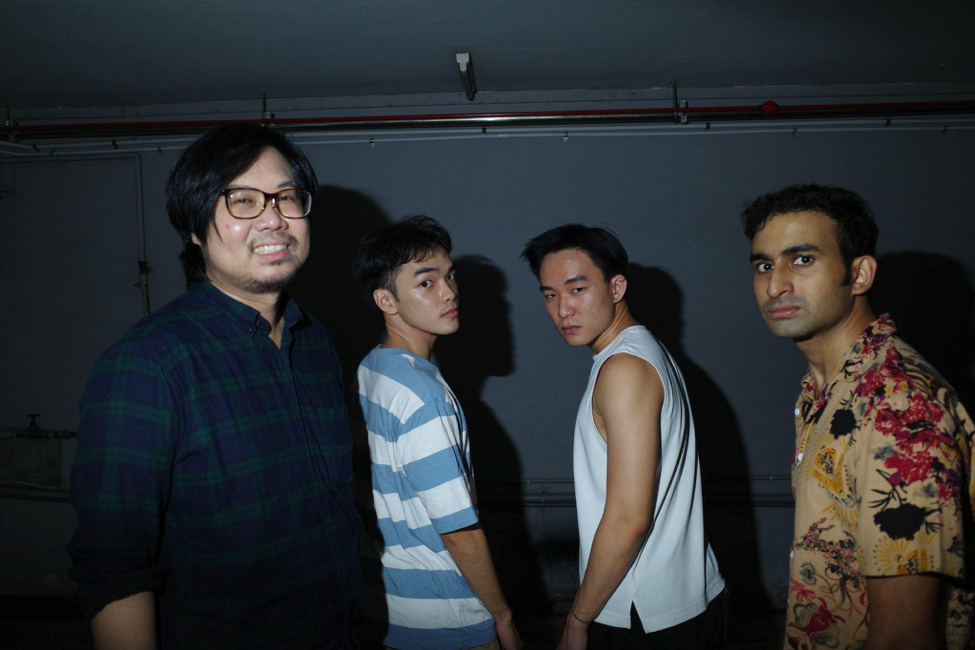
——————————————————————————-
About the Author: Sasha Han seeks to reify the fugitive effects of looking through language. She received her BA in 2021 and has worked with HBO Asia, the Singapore International Film Festival and the National Archives of Singapore.
——————————————————————————-
About the Movie:
Directed by: Jow Zhi Wei
Cast: Leon Dai, Julius Foo, Edward Tan, Harry Nayan, Lekheraj Sekhar, Jay Victor and Neo Swee Lin
Year: 2023
Duration: 1h 46min
Language: Mandarin
Synopsis: A middle-aged widower whose relationship with his sensitive teenage son in the densely packed spaces of contemporary Singapore slowly becomes unbearable.
——————————————————————————-
Tomorrow is a long time
will have its Southeast Asian premiere on 3rd December 2023, 4.00 PM at the 34th Singapore International Film Festival. The screening will be followed by a Q&A with the director. Tickets can be purchased here: https://sgiff.com/film/tomorrow-is-a-long-time/.

